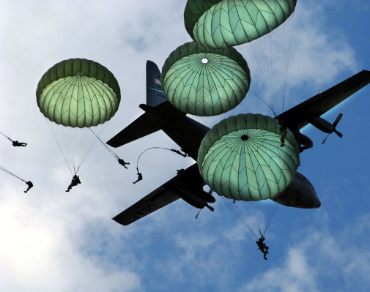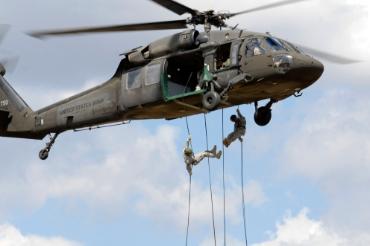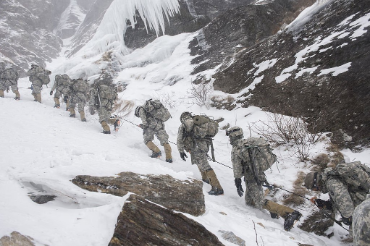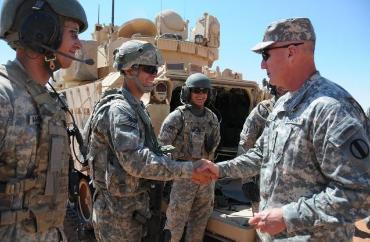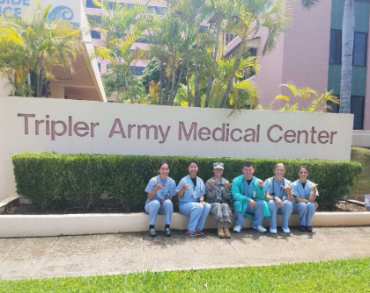
Training Opportunities
Mandatory Training for Cadets
Advanced Camp
After their Junior year, cadets attend the Advanced Camp, previously known as Cadet Leadership Course (CLC), Warrior Forge, or the National Advanced Leadership Course. Successful completion of Advanced Camp is required for all Army ROTC Cadets prior to being commissioned as Second Lieutenants in the United States Army, Army Reserve, or the National Guard. The training incorporates a wide range of subjects designed to develop Cadet's Leadership abilities. We often call it the "Super Bowl of ROTC" because it is here that Cadets put all of the knowledge and skills they have acquired in their first three years to the test.
Basic Camp
Basic Camp allows students to enter the Army ROTC Two-Year Advanced Course without any prior military or ROTC experience. Basic Camp catches students up on all the knowledge and skills they would have learned in their first two years in the Basic Course, providing the necessary training to ensure success during the last two years of Army ROTC. While at Basic Camp, students will be observed and assessed on their officer potential while getting to experience exciting adventure training such as repelling and white-water rafting. This is a great opportunity for students who are interested to gain leadership experience, meet new people, and most importantly, learn more about themselves.
Optional Training
Airborne Training
Limited slots are available for qualified Cadets to attend Airborne School at Fort Benning, Georgia. Applicants must have passed the airborne physical examination and attained the appropriate score on the APFT. Successful completion of this training entitles the Cadet to wear the Army Airborne Badge. The three weeks of training are divided into ground, tower, and jump week. By the end of the third week Cadets will have completed at least 5 successful jumps!
Air Assault Training
The 10-day Air Assault training course is designed to teach Cadets air assault skills and procedures, improve basic leadership skills, and instill the Air Assault spirit. Requirements for selection are the same as for Airborne training. During the course, Cadets will complete an obstacle course, physical training, rappelling, troop ladder, rigging and sling loading, road marches, and evaluations. Successful completion allows cadets to wear the Air Assault Badge. Cadets can attend the Air Assault course at Fort Campbell, Kentucky.
Mountain Warfare Training
Mountain Warfare School is on the slopes of Vermont's Green Mountains. "Tough" is a good way of describing the winter phase of the Mountain Warfare School. In two weeks, soldiers learn to ski and snowshoe. They patrol through waist-deep snow, using altimeter barometers instead of compasses. They climb 30-feet walls of solid ice, perform crevasse rescues and learn survival skills.
Cadet Troop Leadership Training (CTLT)
Limited CTLT allocations are available annually to Cadets who wish to participate in CTLT. This program allows selected Cadets to be attached to active duty or reserve component units (on annual training) and serve in a leadership position. The program is approximately three to four weeks in duration, and is available only to MS III cadets, who attend CLC in the same year. Cadets who attend CTLT are paid at the same rate as for CLC. Upon completion of this assignment, Cadets receive a performance evaluation by an officer in the assigned unit. This evaluation is used by the PMS when providing further counseling and leadership training.
Nurse Summer Training Program (NSTP)
Nurse Summer Training Program is a three to four week program offered to nursing students who have completed Med-Surg I or an equivalent class. Most nursing Cadets will attend this training course following CLC, the summer between their junior and senior years. NSTP is similar to CTLT as nursing Cadets are attached to an Army Hospital unit and practice clinical skills under the guidance of a licensed Army Nurse Corps Officer.
